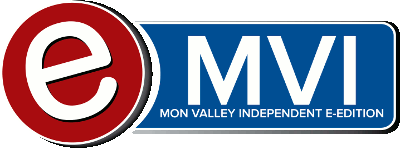
Brad Smith: What I would have told the Trump jury
In recent days, it has become clear that the Trump trial, in which Manhattan District Attorney Alvin Bragg seeks to imprison former President Donald Trump for a maximum of 136 years over allegedly false bookkeeping, will somehow come down to federal campaign finance law. In this way: Trump is charged with falsifying his company’s business records regarding his payment for a legal nondisclosure agreement with the porn actress Stormy Daniels — and doing so with the intention of committing another crime.
But prosecutors have never specified what that other crime is.
In various court filings, however, prosecutors have suggested they plan to argue that Trump intended, along with the false bookkeeping, to violate a state law that bars promoting a political candidacy “by unlawful means.” That’s the other crime, prosecutors will say, and the “unlawful means” will be a violation of the Federal Election Campaign Act, or FECA, the 1970s-era law that regulates political fundraising and spending in federal elections.
That would create a weird situation: a local district attorney in New York prosecuting federal law. “One would say Bragg is outside of his lane, but in this case, he’s on a completely different highway,” George Washington University law professor Jonathan Turley told Fox News in March.
“This is an effort by a state official to effectively prosecute a federal crime, a crime that the Department of Justice decided not to prosecute.”
But that’s what Bragg apparently plans to do. And that led the Trump defense to consult an expert in federal campaign finance law to be ready to testify in the event that Bragg’s prosecutors do indeed characterize the Trump case as based on a violation of federal election law. The expert they chose was former Federal Election Commission Chairman Brad Smith, who is certainly one of the leading authorities in the nation on the application of FECA.
Smith has been an outspoken opponent of what he views is the overapplication of campaign finance law. Specifically, as this newsletter noted a couple of weeks ago, Smith “has argued that there are all sorts of things a candidate can spend money on that are not legally classifiable as ‘for the purpose of influencing any election.’” Among those things would be the nondisclosure agreement Trump reached with Daniels.
The problem for Trump is that Judge Juan Merchan does not want to hear from Smith. Early on, Merchan barred Smith from testifying about virtually anything that had anything to do with the Trump case. He barred Smith from testifying about the campaign finance laws at the heart of Bragg’s charges against Trump. He barred Smith from testifying about anything except general facts about the job of the FEC or the definition of some common campaign terms. In the end, the Trump team decided it was not worth calling Smith to testify under what amounted to a judicial gag order.
So Smith left the courthouse without testifying on Monday. As he headed home, we had a phone conversation about what he would have told the jury had Merchan allowed it.
Smith was not going to give the jury his views on the specific charge against Trump. He knew the judge would never allow that, and he didn’t intend to try. Instead, had he been allowed, Smith said he wanted the jury to know about the complexity of campaign law.
Byron York is chief political correspondent for The Washington Examiner.







